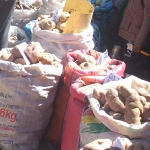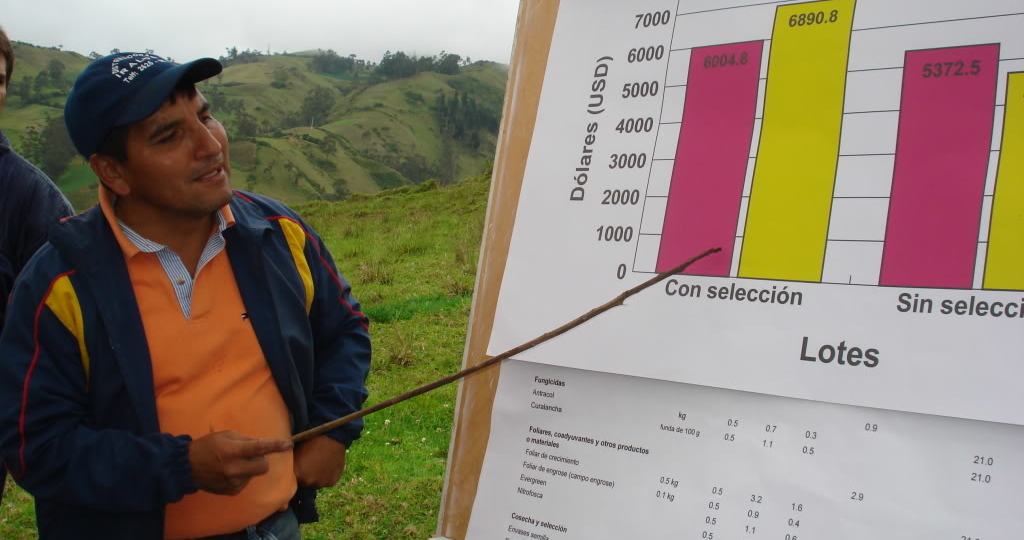


International Potato Center (CIP)
Wageningen, INIAP, Universidad Tecnica de Cotopaxi (UTC)
Ecuador
2/2017—2/2020
Strengthening the resilience of potato seed systems in developing countries can improve the food security of smallholder potato farmers. In this case, resilience refers to the adaptive capacity of the system to function effectively under seed stress situations that can be caused by biotic (e.g., seed-borne pests or pathogens), abiotic factors (e.g., frost or droughts) or socio-economic factors related to the system’s stakeholders. Potato seed degeneration (PSD), defined as pathogen and pest accumulation in seed tubers over successive cycles of vegetative propagation, leads to yield loss and threatens the resilience of these systems by reducing seed health. The “integrated seed health strategy” is one approach to manage PSD in developing countries, which integrates host resistance and on-farm management practices (e.g., positive selection, planting seeds at high altitudes) with strategic use of high-quality seed (e.g., quality declared or certified seed). While PSD has been managed in the global north through certified seed, for various reasons formal seed systems never worked in much of the global south, especially in the high Andes. Currently, a global research effort led by the CGIAR Research Program on Roots, Tubers and Bananas (RTB) is studying the epidemiology of PSD, focusing on biophysical drivers, such as environment, pathogens, host genotype, and management. However, the relationship between biophysical and socio-economic drivers (e.g., on-farm seed management practices, farmers’ seed exchange, decision makers’ perceptions about seed systems, etc.) and how these influence PSD is not clearly understood, and is essential to increasing the productivity and resilience of the main food source of small scale farmers in the Andes.
Seed systems are an essential part of the breeding pipeline, something the CCRP invests in heavily, but they are also essential to integrated pest and disease management, which is a key lever in Agroecological Intensification. Potato, the main staple for small scale farmers in the Andes, is particularly vulnerable to seed born pest and diseases and the CCRP has been committed to funding research on seed systems. This project integrates some of the leading authorities on both the socio-economic dynamics of potato seed systems in the Andes and the biophysical drivers of potato seed degeneration, to provide new insights on large scale systems mechanisms as well as real time feedback to farmers and policy makers. This will provide the region and program with important insights on systems research, multi-disciplinary methods, and Farmer Research Networks.
